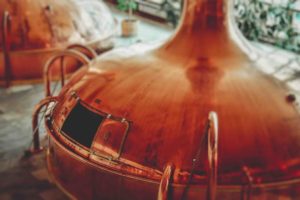
Nevada’s laws and regulations regarding making and selling alcohol are tolerant compared to other states in the nation. Nevada allows alcohol sales at convenience stores, liquor stores, and bars without any time limit. In addition, there is no prohibition on selling alcoholic liquor at any of those locations. That being said, the Nevada state liquor control commission does have penalties for those who violate their laws. All alcoholic beverage permits are regulated by each individual Nevada county.
Nevada Laws
Beer Making: Currently, Nevada law only requires a valid permit, certificate, or license when alcohol is produced for sale. There is no provision, exception, or exemption, nor is there a permit, certificate, or license that exists in Nevada regarding home production of beer. Because beer produced at home is not intended for sale, its production may be outside of the scope of the law.
Wine Making: Nevada allows individuals to operate an instructional winemaking facility if they obtain a license, comply with all local, state, federal, and other governmental requirements for the operation of the facility. The wine produced on the premises must be used, consumed, or disposed of on the property or distributed from the facility to a person of legal age who has participated directly in the winemaking process on the property for his or her own personal or household use. The wine may be given to another person of legal age as a gift. No wine other than the wine the person participated in directly in the process of making can be taken from the facility. No more than 60 gallons of wine for any 12-month period may be taken from the facility.
Moonshine: Nevada allows an individual to make moonshine if he or she possess the required permit or license. The still may be used to brew alcoholic beverages for personal or family use. The moonshine brewed may be shared with guests. If a person wants to produce moonshine for commercial use, he or she can produce up to 60 gallons of alcoholic beverages annually by obtaining a micro-distillery license.
Spirituous Alcohol: Nevada does not allow individuals to distill ethanol to produce spirituous alcohol and fuel. A permit is required for ethanol distillation which, after a certificate is issued, will allow you to distill ethanol legally.
Changes in the Law
In 2017, the Nevada legislature enacted two bills that proposed changes in the state’s laws regulating alcoholic beverages.
Senate Bill 199 (SB199) creates an estate distillery category. Under SB199, distilleries can sell up to 75,000 cases per year to a Nevada liquor wholesaler. They may also export another 400,000 cases to another state. That being said, SB199 limits the estate distillery’s retail sales to 7,500 cases per year for off-premises consumption.
Assembly Bill 431 (AB431) amends the state’s laws governing breweries, brew pubs, wineries, and craft distilleries. AB431 allows brew pubs to produce 40,000 barrels per year as opposed to the prior limit of 15,000. Yet, AB431 reduces the amount of beer that may be sold at retail from 15,000 barrels per year to 5,000 per year. Moreover, AB431 allows wineries to operate under an alternative business model so that up to four wineries may operate under the same roof.
Legal Help in Nevada
In short, while Nevada does allow you to make your own alcoholic beverages and spirits, there are rules and regulations that must be followed in order to do so legally. If you have questions about Nevada alcoholic beverage laws, or any other legal question, contact the knowledgeable attorneys at H & P today.




